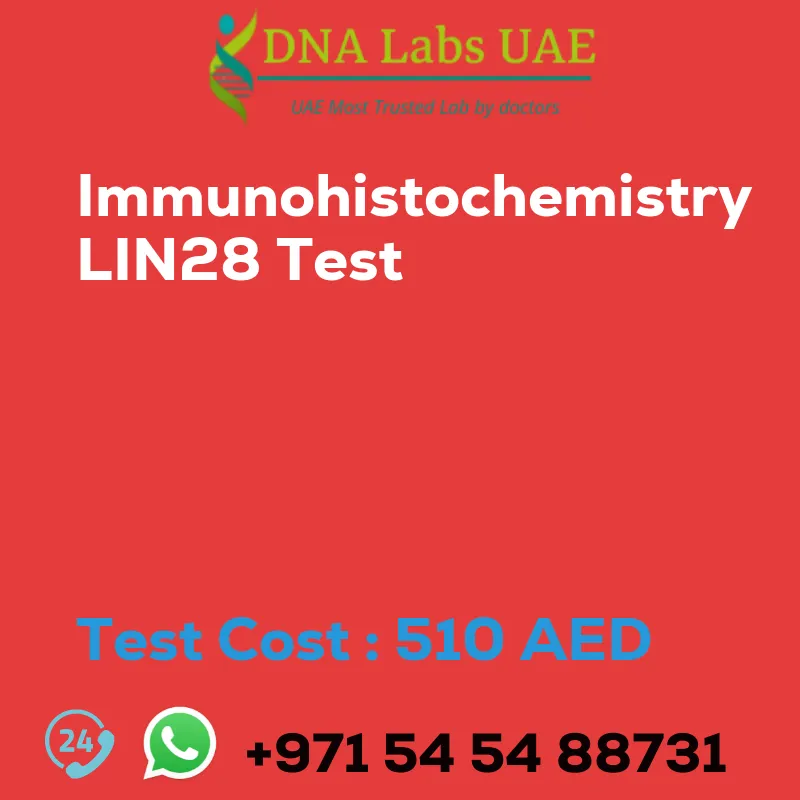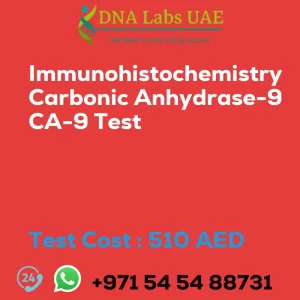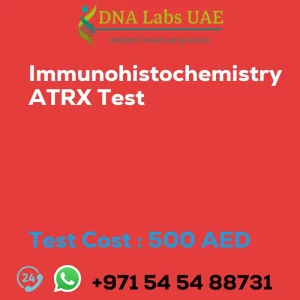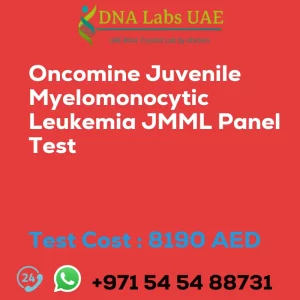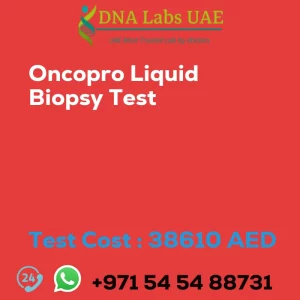IMMUNOHISTOCHEMISTRY LIN28 Test
Test Name: IMMUNOHISTOCHEMISTRY LIN28 Test
Components: LIN28 protein detection in tissue samples
Price: 510.0 AED
Sample Condition: Submit tumor tissue in 10% Formal-saline OR Formalin fixed paraffin embedded block. Ship at room temperature. Provide a copy of the Histopathology report, Site of biopsy and Clinical history.
Report Delivery: Sample Daily by 6 pm; Report Block: 5 days Tissue Biopsy: 5 days Tissue large complex: 7 days
Method: Immunohistochemistry
Test Type: Cancer
Doctor: Oncologist, Pathologist
Test Department: HISTOLOGY
Pre Test Information: Provide a copy of the Histopathology report, Site of biopsy and Clinical history.
Test Details
The LIN28 immunohistochemistry (IHC) test is a diagnostic tool used in pathology to detect the presence and localization of the LIN28 protein in tissue samples. LIN28 is a highly conserved RNA-binding protein that plays a critical role in embryonic development and stem cell maintenance. Aberrant expression of LIN28 has been associated with various types of cancers and other diseases.
The IHC technique involves the use of specific antibodies that bind to the LIN28 protein in tissue sections. These antibodies are usually labeled with a chromogen or a fluorophore, which allows for the visualization of the protein under a microscope. The staining pattern and intensity can provide information about the expression and localization of LIN28 in the tissue sample.
The LIN28 IHC test can be performed on formalin-fixed, paraffin-embedded tissue sections or frozen tissue sections. It is commonly used in research and clinical settings to study LIN28 expression in various types of cancer, such as breast, lung, and ovarian cancer. The test can help in the diagnosis, prognosis, and treatment selection for patients with these diseases.
It is important to note that the LIN28 IHC test is just one of many tools used in pathology to study protein expression in tissues. It is typically used in conjunction with other tests, such as molecular analysis or other IHC markers, to provide a comprehensive assessment of the disease. The interpretation of the test results should be done by a trained pathologist who can consider the clinical context and other relevant factors.
| Test Name | IMMUNOHISTOCHEMISTRY LIN28 Test |
|---|---|
| Components | |
| Price | 510.0 AED |
| Sample Condition | Submit tumor tissue in 10% Formal-saline OR Formalin fixed paraffin embedded block. Ship at room temperature. Provide a copy of the Histopathology report, Site of biopsy and Clinical history. |
| Report Delivery | Sample Daily by 6 pm; Report Block: 5 days Tissue Biopsy: 5 days Tissue large complex : 7 days |
| Method | Immunohistochemistry |
| Test type | Cancer |
| Doctor | Oncologist, Pathologist |
| Test Department: | HISTOLOGY |
| Pre Test Information | Provide a copy of the Histopathology report, Site of biopsy and Clinical history. |
| Test Details |
The LIN28 immunohistochemistry (IHC) test is a diagnostic tool used in pathology to detect the presence and localization of the LIN28 protein in tissue samples. LIN28 is a highly conserved RNA-binding protein that plays a critical role in embryonic development and stem cell maintenance. Aberrant expression of LIN28 has been associated with various types of cancers and other diseases. The IHC technique involves the use of specific antibodies that bind to the LIN28 protein in tissue sections. These antibodies are usually labeled with a chromogen or a fluorophore, which allows for the visualization of the protein under a microscope. The staining pattern and intensity can provide information about the expression and localization of LIN28 in the tissue sample. The LIN28 IHC test can be performed on formalin-fixed, paraffin-embedded tissue sections or frozen tissue sections. It is commonly used in research and clinical settings to study LIN28 expression in various types of cancer, such as breast, lung, and ovarian cancer. The test can help in the diagnosis, prognosis, and treatment selection for patients with these diseases. It is important to note that the LIN28 IHC test is just one of many tools used in pathology to study protein expression in tissues. It is typically used in conjunction with other tests, such as molecular analysis or other IHC markers, to provide a comprehensive assessment of the disease. The interpretation of the test results should be done by a trained pathologist who can consider the clinical context and other relevant factors. |

